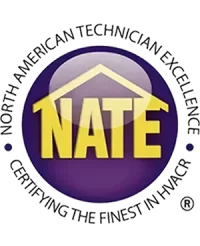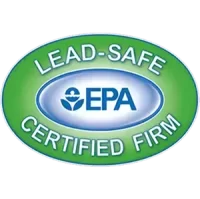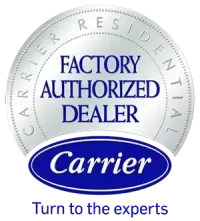Understanding Water Heater Replacement Needs in Oswego
When your water heater begins showing signs of age or failure, immediate attention becomes essential for maintaining comfort in your Oswego home. Water heaters typically last between eight and twelve years, depending on water quality, usage patterns, and maintenance history. Recognition of early warning signs can prevent complete system failure and the inconvenience of unexpected cold showers. Common indicators include rusty or discolored water, unusual noises emanating from the tank, visible corrosion on the unit’s exterior, pooling water around the base, and inconsistent water temperatures during use.
The decision to replace a water heater often comes after careful consideration of repair costs versus replacement benefits. When repair estimates exceed fifty percent of replacement costs, or when your unit has surpassed its expected lifespan, replacement becomes the most economical choice. Energy Services Air Conditioning and Heating Company evaluates each situation individually, considering factors such as your household’s hot water demands, available space for installation, energy efficiency goals, and budget constraints to recommend the most suitable replacement option.
Types of Water Heaters Available for Oswego Homes
Traditional tank water heaters remain popular throughout Oswego due to their reliability and lower upfront costs. These units store between thirty and eighty gallons of heated water, maintaining constant temperature through either natural gas or electric heating elements. Gas models typically heat water faster and operate more economically in areas where natural gas prices remain competitive. Electric models offer simpler installation requirements and eliminate concerns about carbon monoxide or gas leaks, making them ideal for certain home configurations.
Tankless water heaters have gained significant traction in recent years, offering endless hot water supply while occupying minimal space. These on-demand systems heat water as it flows through the unit, eliminating standby energy losses associated with maintaining stored hot water. Initial investment costs run higher than traditional tanks, but energy savings of twenty to thirty percent often justify the expense over time. Tankless units particularly benefit larger households with simultaneous hot water demands or homes where space constraints make traditional tank installation challenging.
Heat pump water heaters represent cutting-edge efficiency technology, extracting heat from surrounding air to warm water while using sixty percent less energy than conventional electric models. These units work exceptionally well in Oswego’s climate when installed in unconditioned spaces like basements or garages where ambient temperatures remain above forty degrees Fahrenheit year-round. While initial costs exceed traditional options, substantial energy savings and available rebates make heat pump water heaters increasingly attractive for environmentally conscious homeowners.
The Professional Replacement Process
Professional water heater replacement begins with comprehensive assessment of your existing system and home infrastructure. We examine current unit specifications, measure available installation space, evaluate venting requirements for gas models, inspect electrical capacity for electric units, and assess water line conditions. This thorough evaluation ensures proper sizing and configuration of your new water heater while identifying any necessary upgrades to supporting systems.
Removal of your old water heater requires careful attention to safety protocols and environmental regulations. Water must be completely drained, gas lines properly disconnected and capped, electrical connections safely terminated, and the unit carefully extracted without damaging surrounding structures. At Energy Services Air Conditioning and Heating Company, we’re proud to provide the best in HVAC and indoor air quality services to residential customers throughout Chicago and the surrounding communities. Our technicians handle disposal responsibly, ensuring old units reach appropriate recycling facilities where materials can be reclaimed and repurposed.
Installation of your new water heater follows manufacturer specifications and local building codes precisely. This includes:
- Proper positioning and securing: ensuring adequate clearance for maintenance and code compliance
- Plumbing connections: installing new shutoff valves, pressure relief valves, and expansion tanks as required
- Gas line installation: properly sizing and testing connections for leak-free operation
- Electrical connections: verifying proper voltage, amperage, and circuit protection
- Venting system configuration: ensuring safe exhaust of combustion gases for gas models
- Initial startup and testing: confirming proper operation, temperature settings, and safety device function
Energy Efficiency Considerations and Cost Savings
Modern water heaters offer substantial efficiency improvements over units manufactured just ten years ago. Federal regulations now require minimum efficiency standards, but premium models exceed these requirements significantly. Energy Factor ratings help compare efficiency across different models and fuel types. Higher ratings translate directly into lower operating costs, with some high-efficiency units reducing water heating expenses by forty percent or more compared to older, standard efficiency models.
Oswego residents can take advantage of various utility rebates and tax incentives when upgrading to energy-efficient water heaters. Local utility companies often provide rebates ranging from fifty to five hundred dollars for qualifying high-efficiency models. Federal tax credits may cover up to thirty percent of costs for certain renewable energy systems like solar water heaters or qualifying heat pump models. Whether you need to find the right HVAC system for a new home or want to have maintenance completed on your current system, you can count on us to help navigate available incentives and maximize your investment value.
Maintenance Requirements for Extended Water Heater Life
Proper maintenance significantly extends water heater lifespan while maintaining peak efficiency. Annual flushing removes sediment accumulation that reduces heating efficiency and accelerates tank corrosion. Temperature and pressure relief valve testing ensures this critical safety component functions properly. Anode rod inspection and replacement when necessary prevents tank corrosion, potentially adding years to equipment life. Professional annual inspections identify developing issues before they become costly failures.
Oswego’s water quality characteristics influence maintenance requirements and replacement frequency. Moderate hardness levels common in local water supplies accelerate mineral buildup within tanks and on heating elements. Installing water softening systems can reduce these effects, though softened water may increase anode rod consumption rates. Understanding these local factors helps optimize maintenance schedules and equipment selection for maximum longevity and efficiency in your specific situation.










